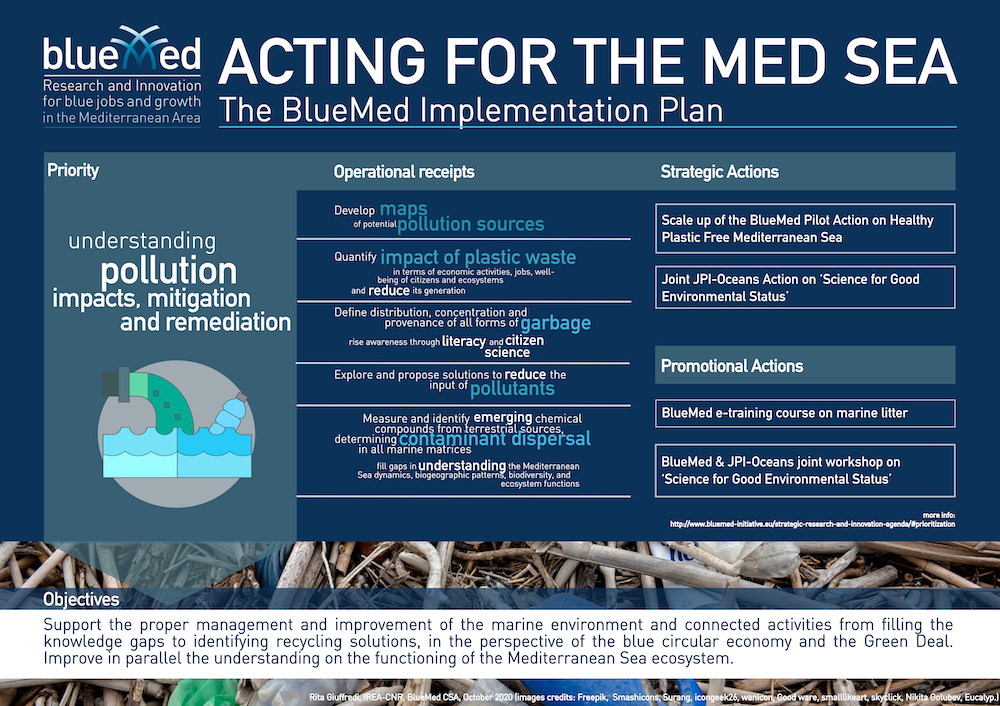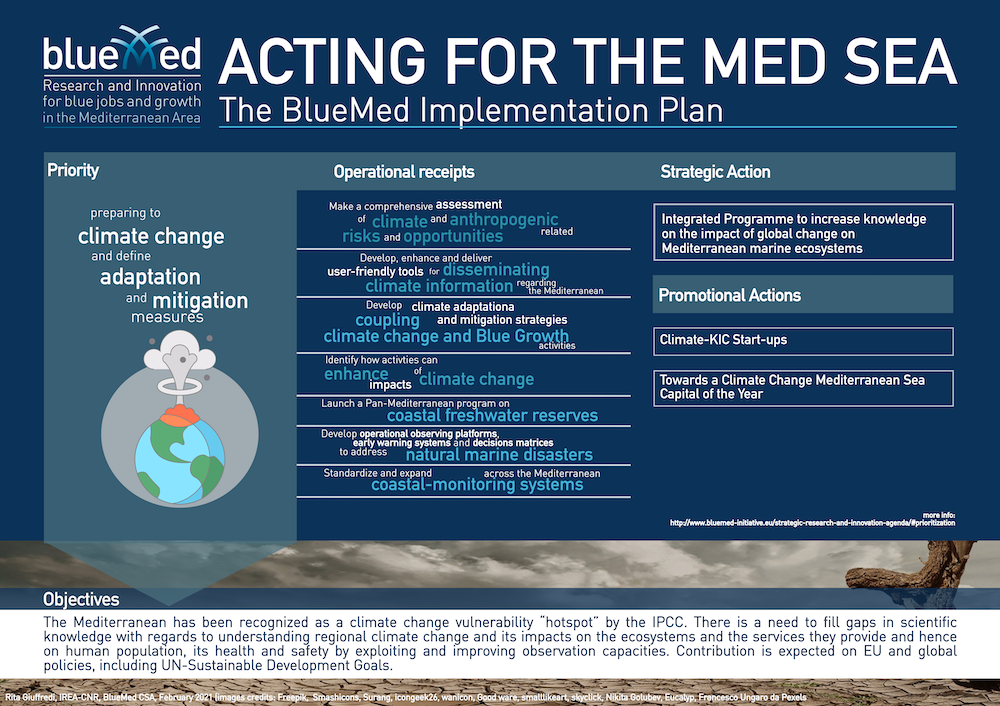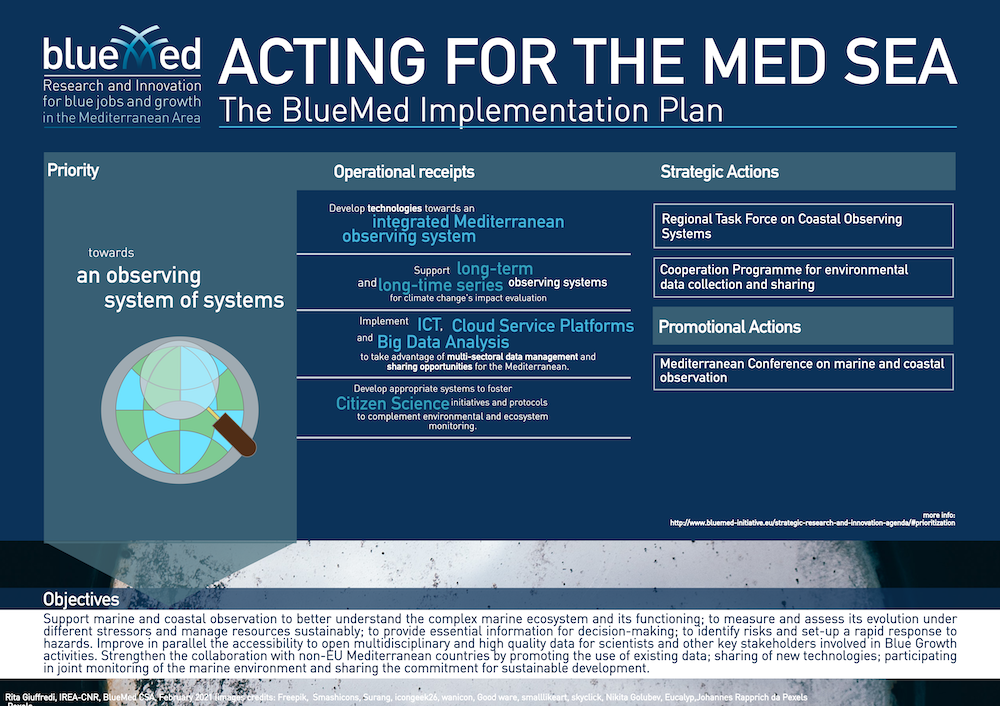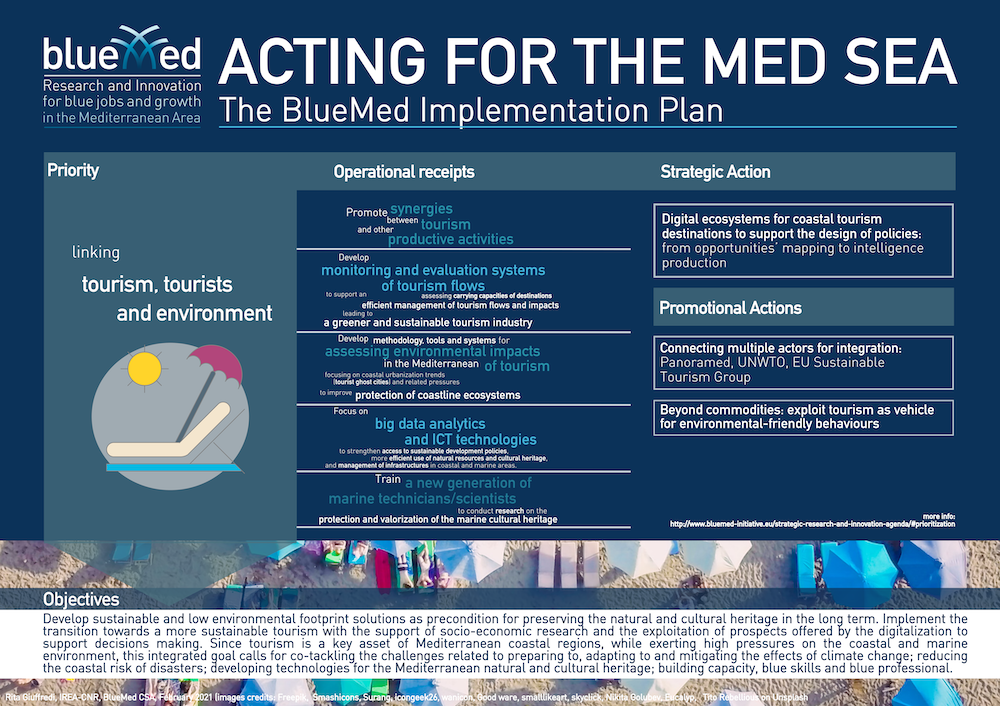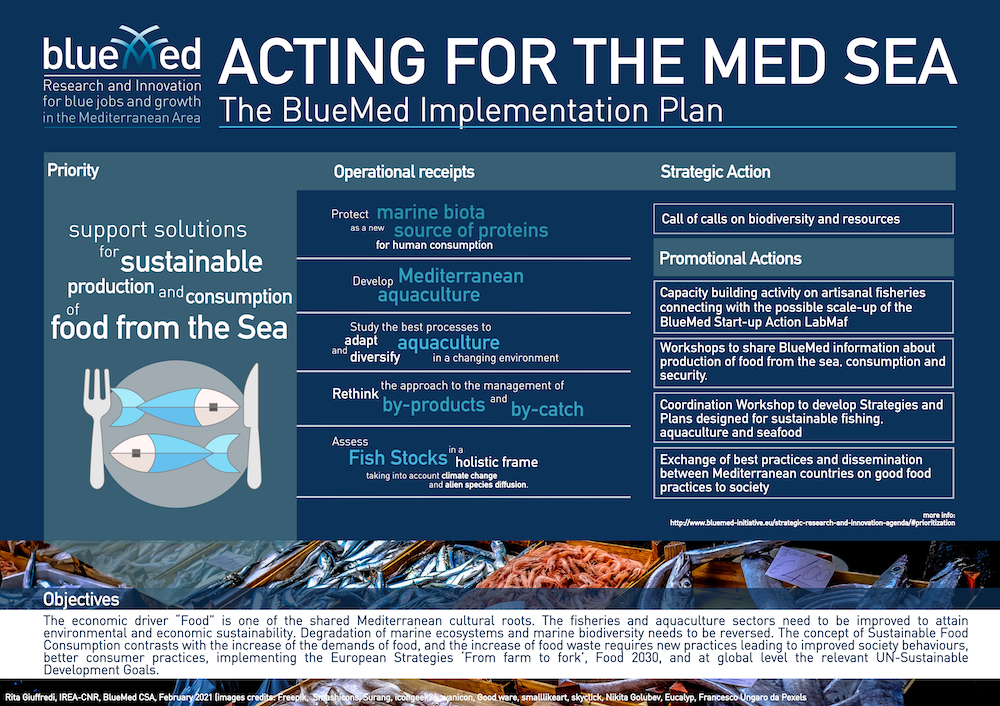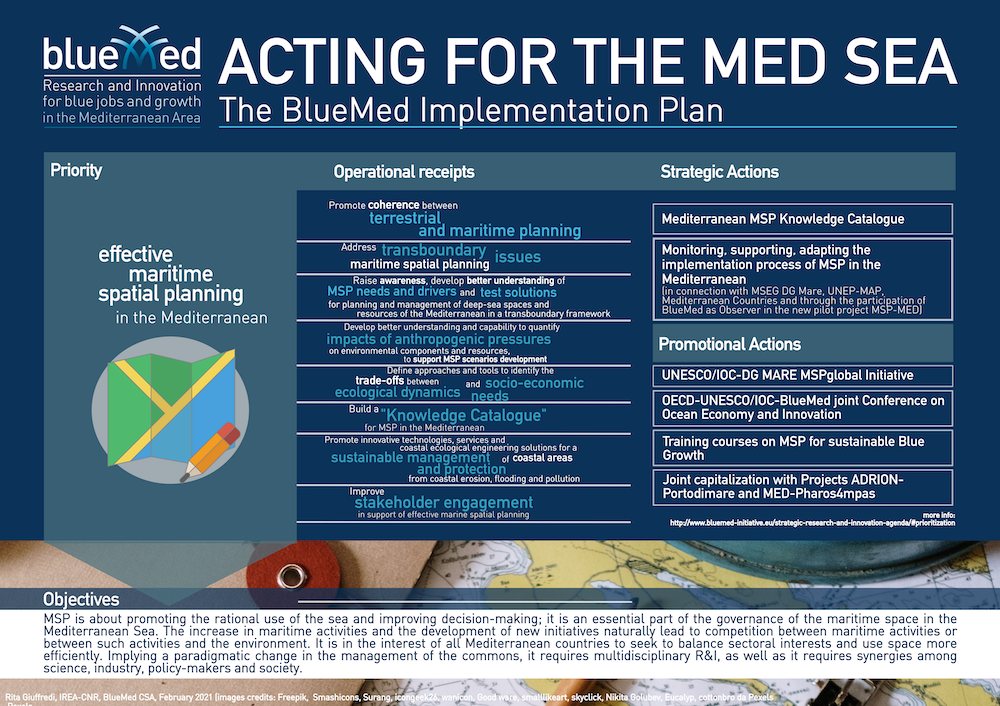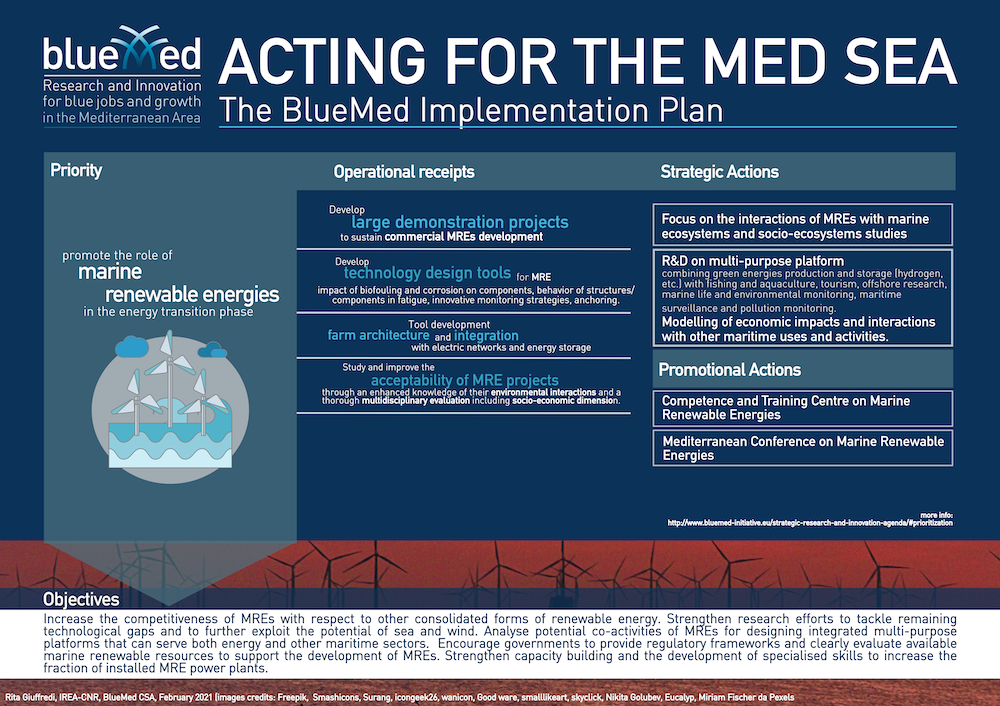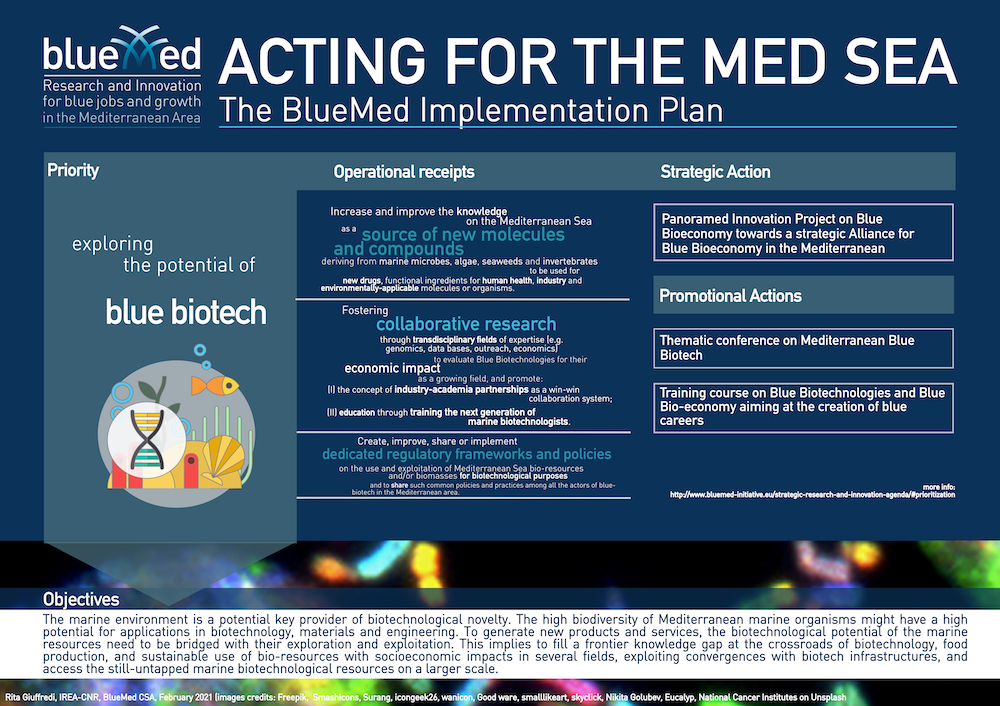The BlueMed Strategic Research and Innovation Agenda (SRIA)
The BlueMed Strategic Research and Innovation Agenda (SRIA) outlines a set of key challenges for the Mediterranean and particularly knowledge gaps, specific activities enabling the blue growth as well as measures for capacity creation and skills’ enhancement. Sectors of interest include ecosystems, climate change, biotechnologies, aquaculture, fisheries, tourism, shipbuilding, transportation, observing systems, data, off-shore platforms, cultural heritage, spatial planning.
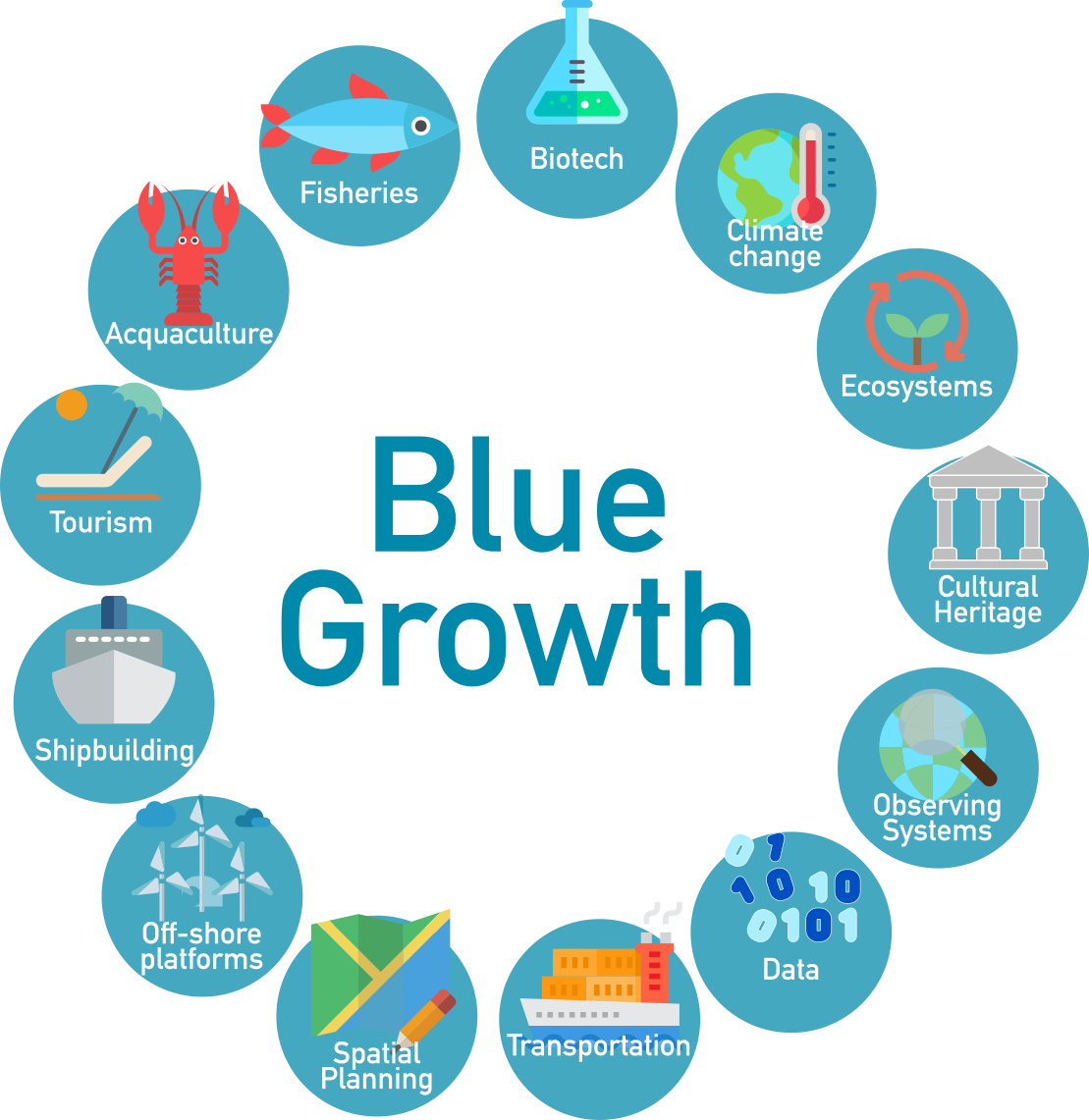
The SRIA targets relevant research and innovation players and public and private actors of the blue economy such as national ministries, regional authorities, international organisations, research organisations, research infrastructures, academia, the private sector, non-governmental organizations and the general public.
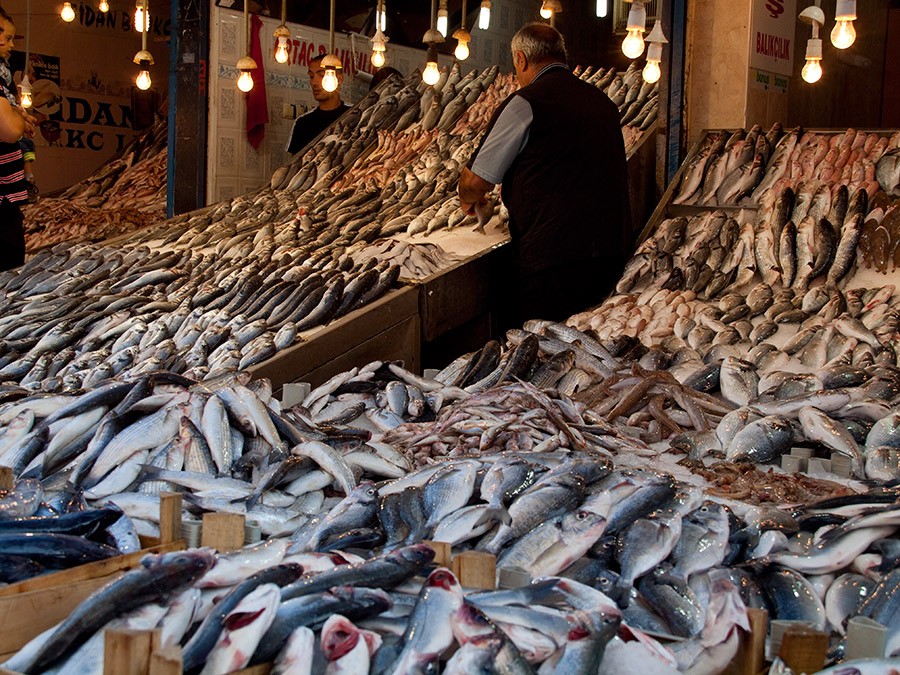 The first release, dated October 2015, was the result of a consultation process at the national levels in the BlueMed member countries. In April 2017, an updated version was published. The present version, updated in December 2018, is the result of the work of the four BlueMed platforms and incorporates the contributions of the non-EU countries involved in the process, following the agreement made by the Euro Mediterranean Group of Senior Officials BlueMed Working Group in Barcelona on October 2018.
The first release, dated October 2015, was the result of a consultation process at the national levels in the BlueMed member countries. In April 2017, an updated version was published. The present version, updated in December 2018, is the result of the work of the four BlueMed platforms and incorporates the contributions of the non-EU countries involved in the process, following the agreement made by the Euro Mediterranean Group of Senior Officials BlueMed Working Group in Barcelona on October 2018.
It now represents the represents a comprehensive strategy with the views of all stakeholders in the Mediterranean Basin.
STRATEGIC RESEARCH AND INNOVATION AGENDA (SRIA)
Download here the most updated version (March 2021):
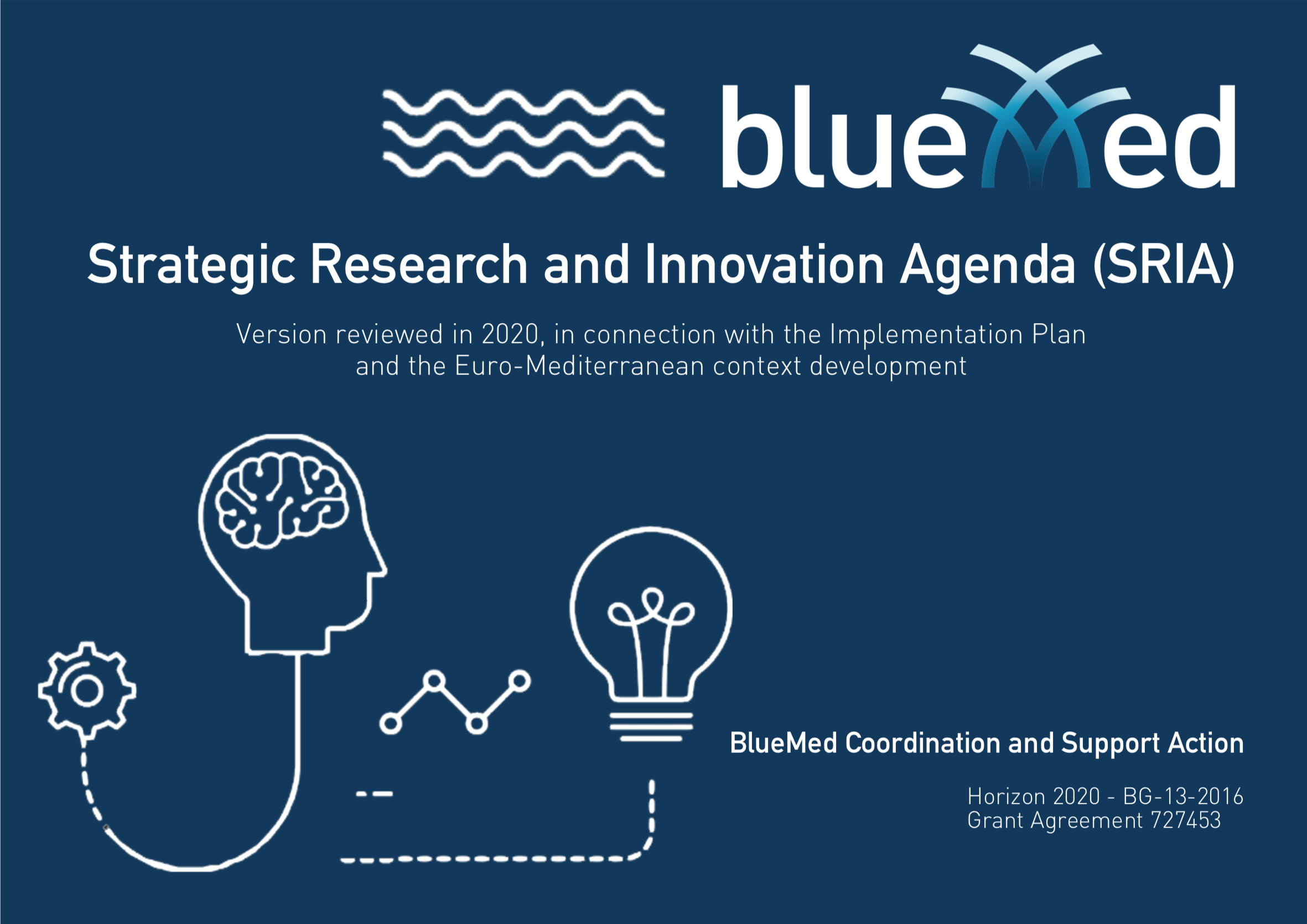
also available: version française
History of versions:
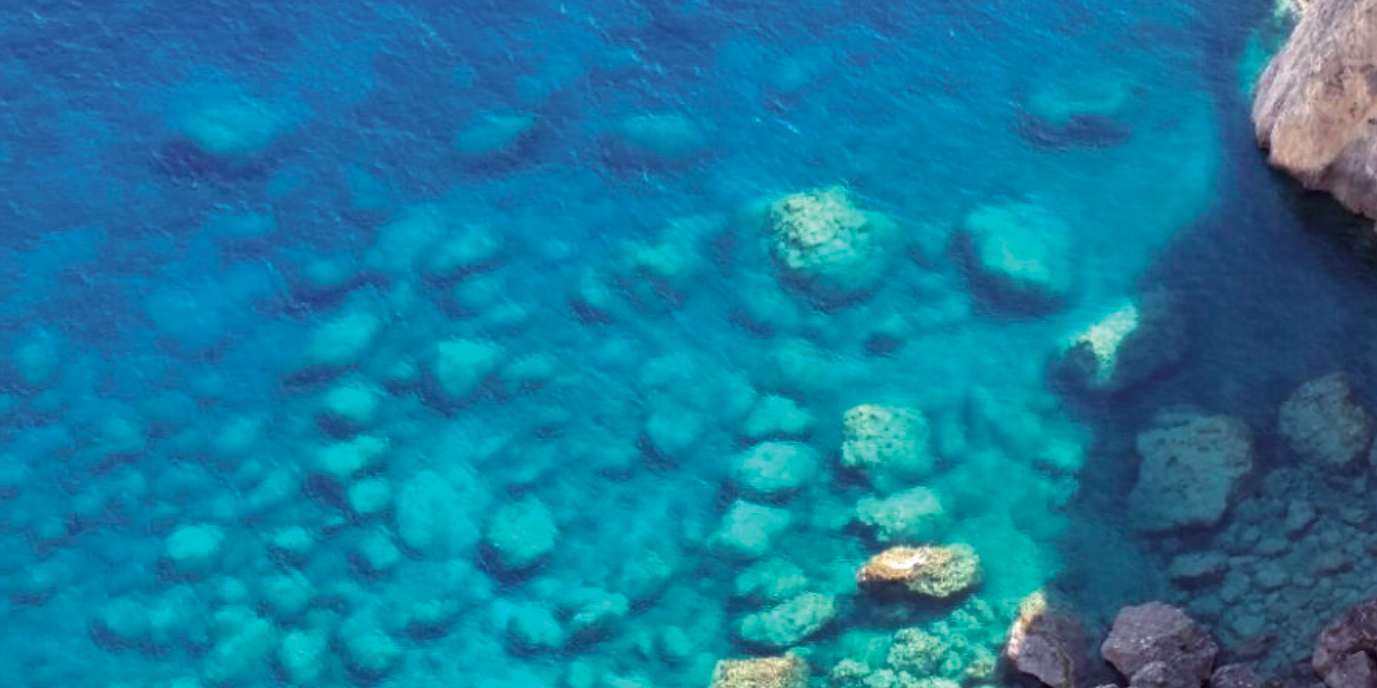
The SRIA definition process
- Identify the needs of marine and maritime communities and align relevant programmes;
- Increase the accessibility of opportunities, funding and facilities;
- Develop joint actions by aligning, planning and programming research and innovation activities at multiple level;
- Engage different stakeholders;
- Fine-tune data, knowledge, capacities and projects;
- Maximise leverage effects of research investments and their influence on public policy;
- Raise awareness on the impacts to the Mediterranean that have been caused by a non-sustainable economic growth on land and at sea.
Challenges and goals for Blue Growth
BlueMed identifies a set of challenges under three pillars, (i) ‘key enabling knowledge’, (ii) ‘key sectoral enablers’, and (iii) ‘enabling technology and capacity creation’ characterized by tight horizontal synergies deemed necessary for sketching economy-driven trajectories. It also highlights cross-cutting themes.
The challenges are reported in the below, while the complete set of goals can be read on the SRIA document.
Key enabling knowledge for the Mediterranean
A. Mediterranean Sea ecosystems: characterize present dynamics, services, resources, vulnerability and resilience to natural and anthropogenic pressures
B. Mediterranean Sea: forecast changes of the basin under climate and anthropogenic pressures and develop services in the field of sustainable adaptation to climate change and plans for mitigation
C. Hazards and protection of coastal areas and open sea in the Mediterranean
D. Innovative blue growth trajectories: biotechnologies, food, and the deep sea and offshore resources
The BlueMed Implementation Plan
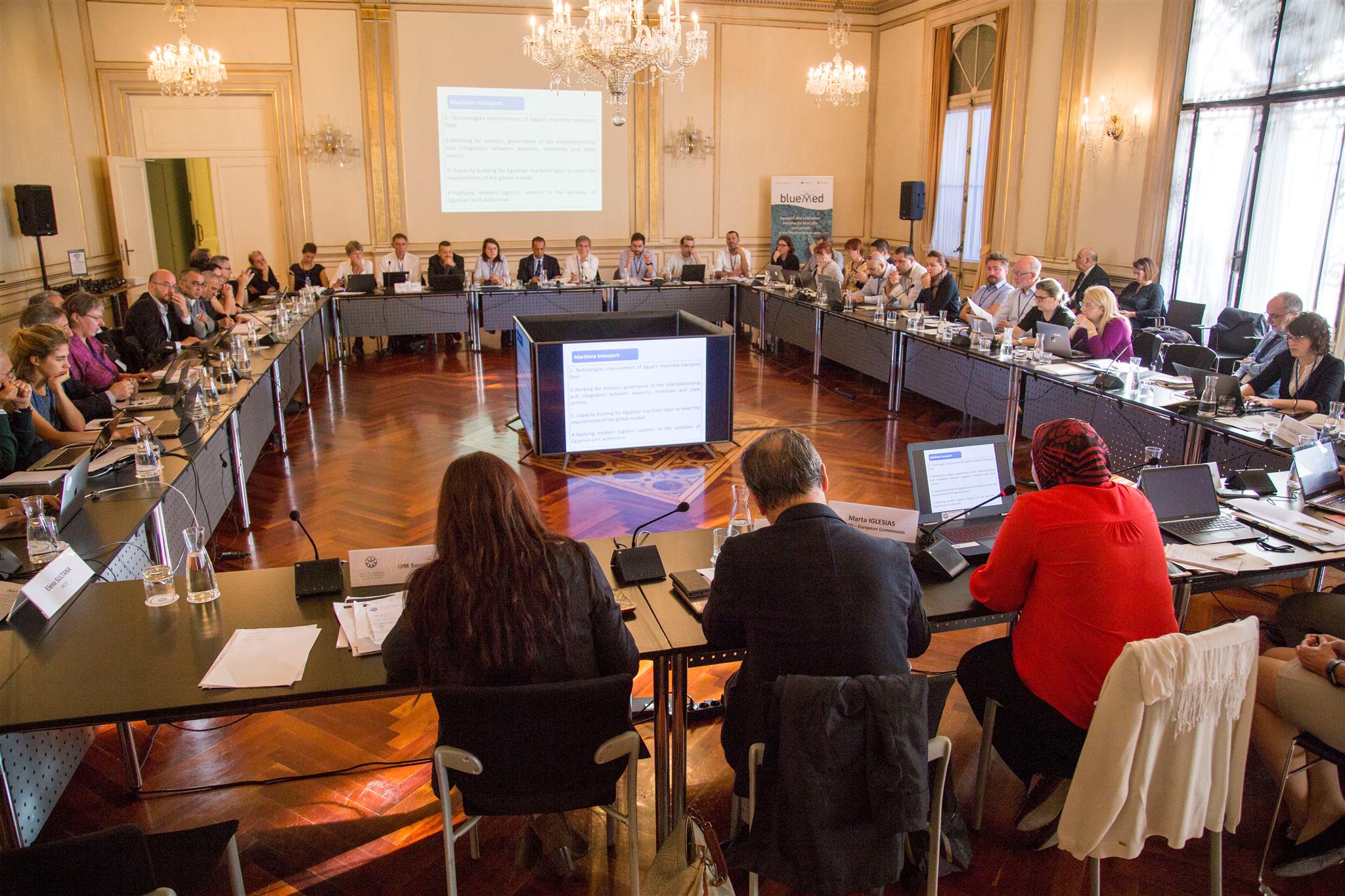 The Implementation Plan, drafted in June 2020, presents the shared priority goals, resulting from the preliminary prioritisation work jointly realised by the countries, and addresses thematic and structuring activities to be developed in order to ignite a transformative process at Mediterranean level. Each priority, closely linked to a key challenge in the shared BlueMed Strategic Research and Innovation Agenda, comes with an “operational receipt” to reach the priority goal and with a set of Strategic Actions, i.e. larger and medium-long term initiatives and activities, with specific scientific or structural content that require strong commitment and additional dedicated resources from research funders; moreover, for each Strategic Action a proposal of feasible promotional actions is reported.
The Implementation Plan, drafted in June 2020, presents the shared priority goals, resulting from the preliminary prioritisation work jointly realised by the countries, and addresses thematic and structuring activities to be developed in order to ignite a transformative process at Mediterranean level. Each priority, closely linked to a key challenge in the shared BlueMed Strategic Research and Innovation Agenda, comes with an “operational receipt” to reach the priority goal and with a set of Strategic Actions, i.e. larger and medium-long term initiatives and activities, with specific scientific or structural content that require strong commitment and additional dedicated resources from research funders; moreover, for each Strategic Action a proposal of feasible promotional actions is reported.
Prioritisation methodology:
The selection method is rigid enough to allow comparable results, and flexible enough to allow countries give their national perspective (priorities can change on social, geographical, economic reasons, etc.).
The Implementation Plan
Download here the BlueMed Implementation Plan (June 2020):
“Slim” version (February 2021):
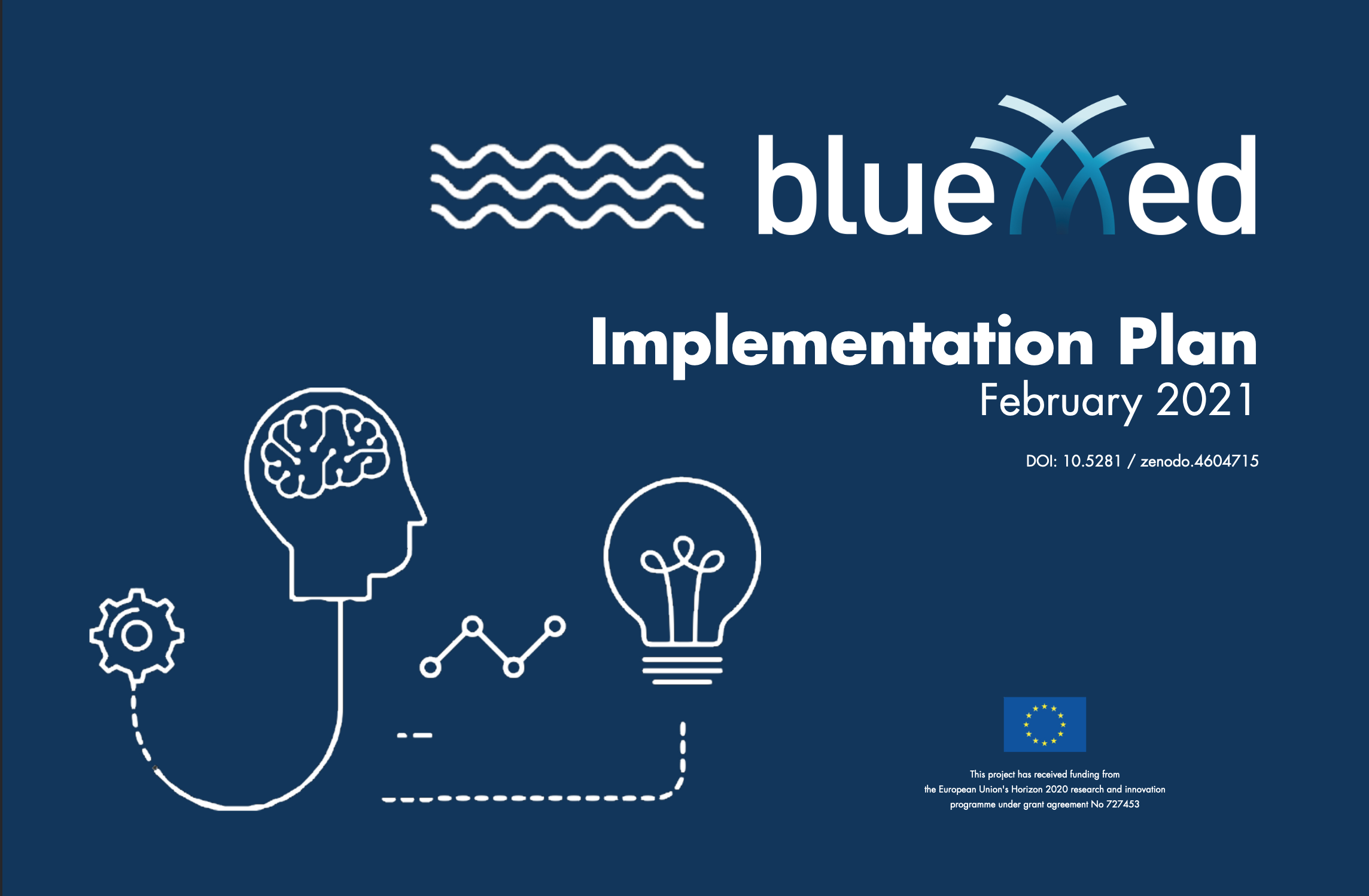
Also available:
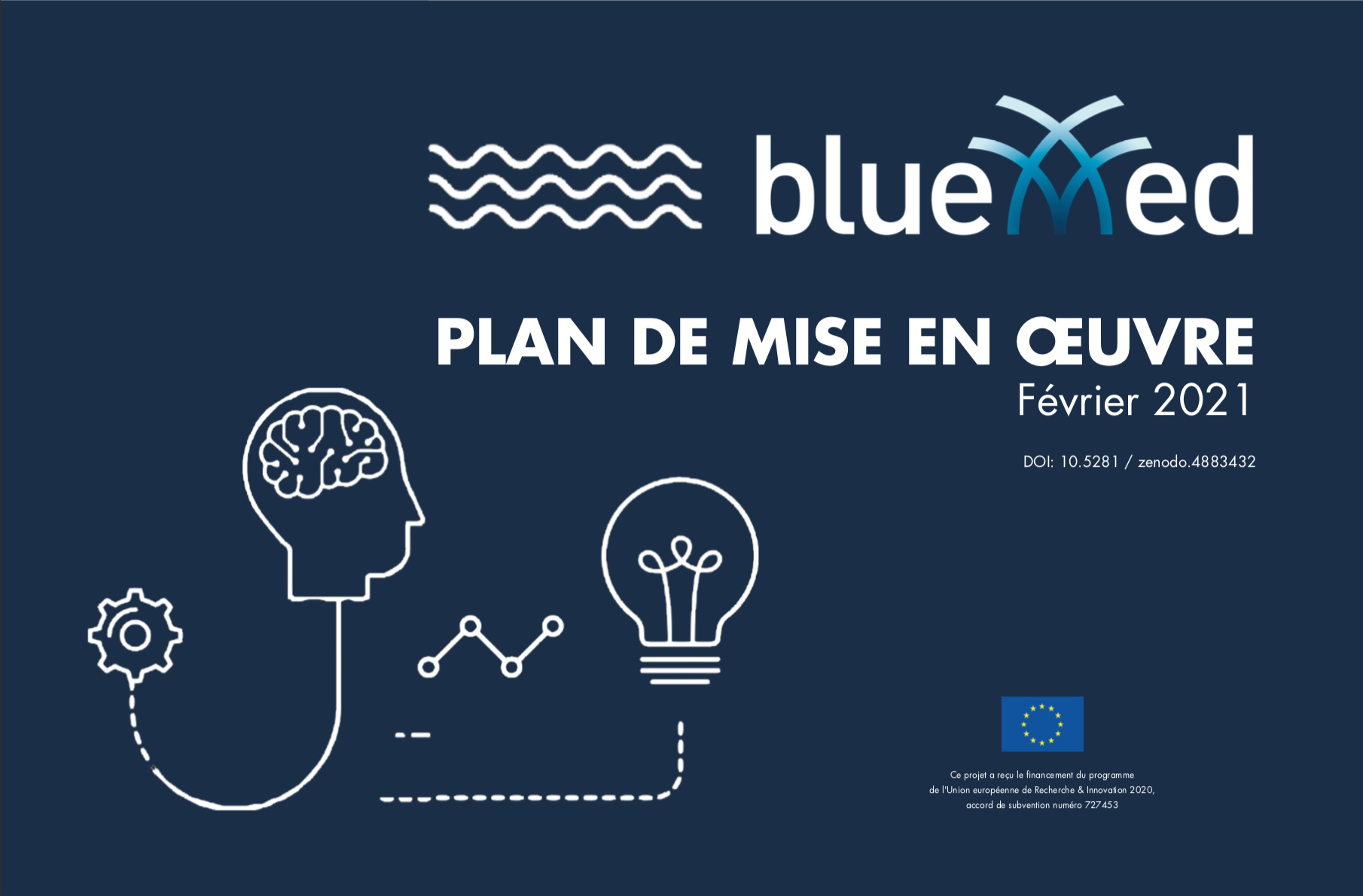 |
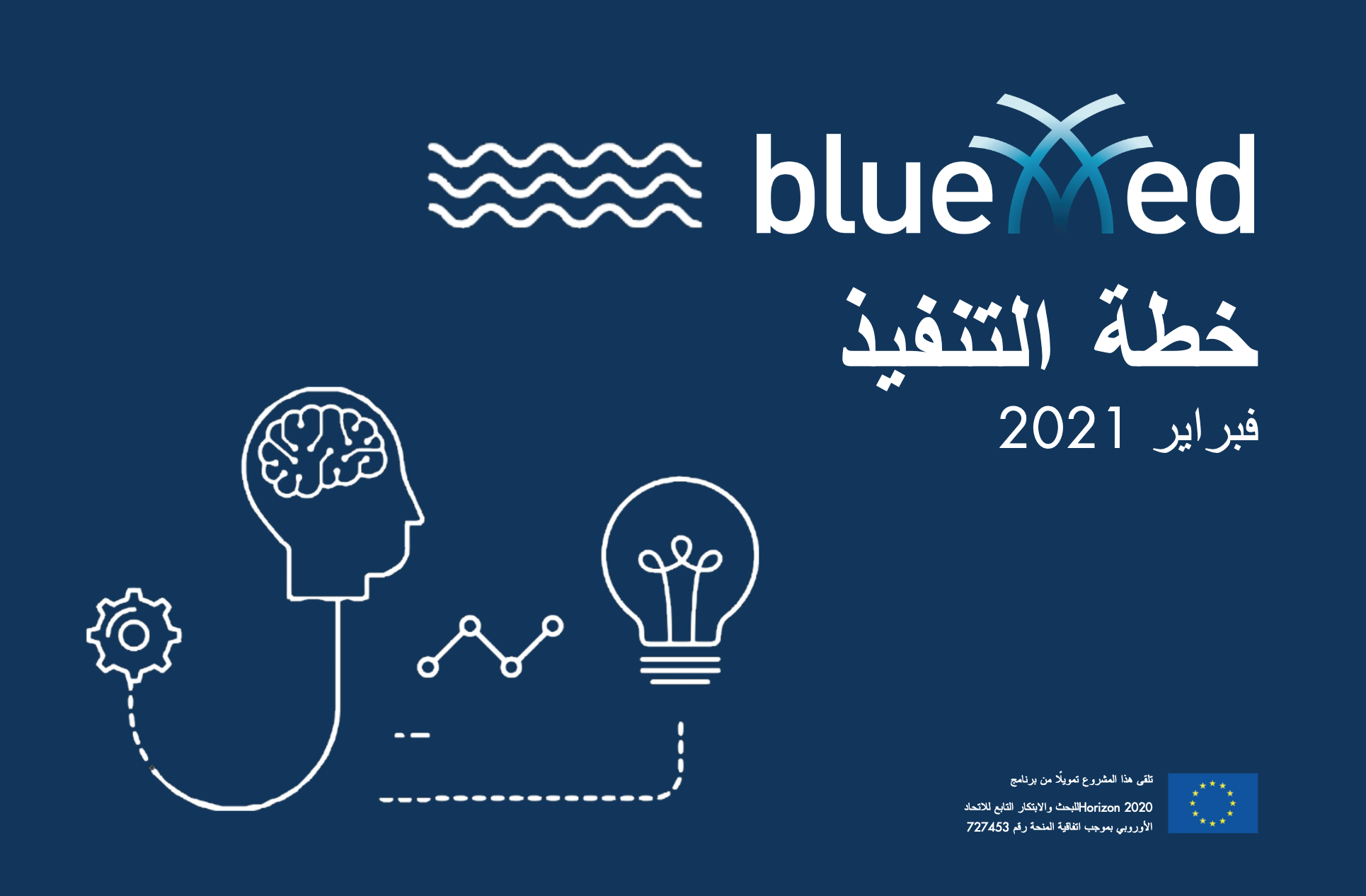 |
| version française | النسخة العربية (Arabic version) |
Full version (June 2020):
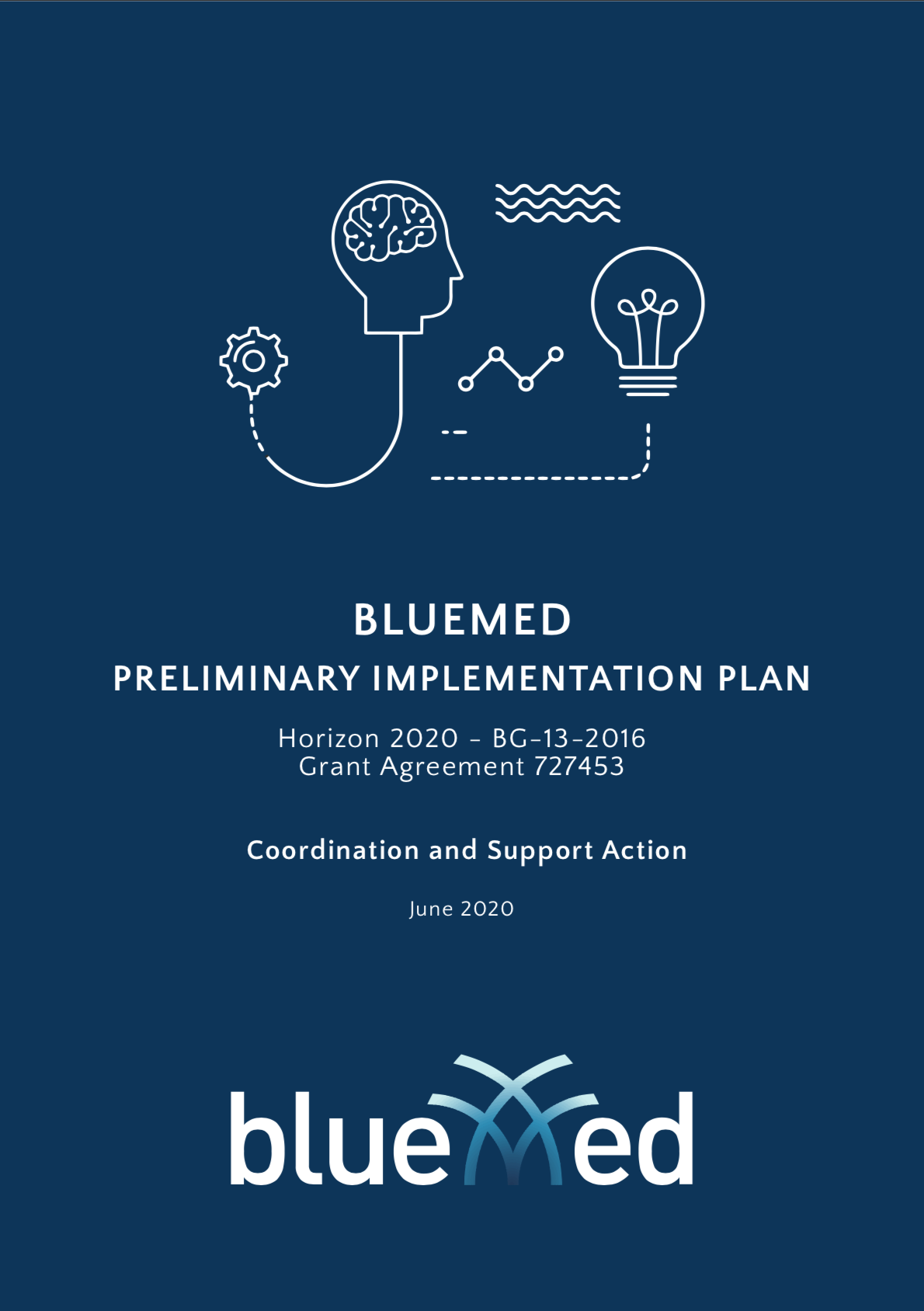
or download the full version separate files:


